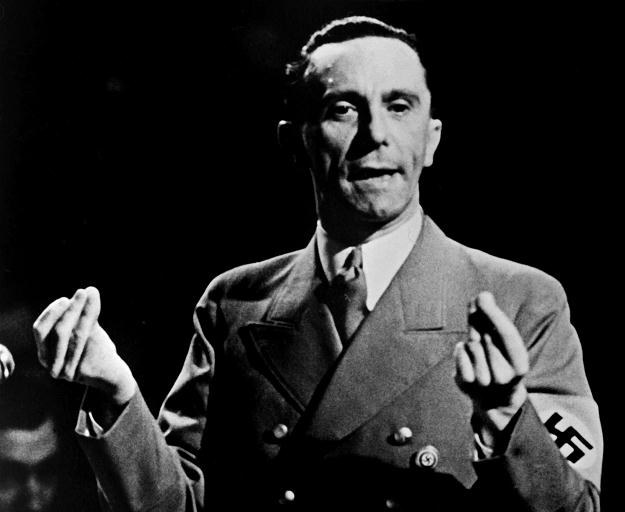Chapter 16, “To Unreason and Beyond,” is another clear example of the Third Reich’s utilization of architecture, technology, and propaganda to influence and misguide public opinion. The chapter begins with a speech by Goebbels following Germany’s crushing defeat at Stalingrad.

Goebbels, as the Third Reich had done throughout the entirety of the war, refocused the public’s attention from the defeat onto another “issue” – in this case, it was the growing threat of “Bolshevism” in the east. Goebbels then used this message to further justify a state of total war for Germany, even though the country was already under insurmountable pressure. It appears Goebbels did not think the German people understood seriousness of the war as it was.
With all this discussion of propaganda, it is important to mention that the German people were not oblivious to the purpose of these speeches. As Moorhouse notes, “[the German people] knew very well that they had been seduced.” Regardless of this fact, or perhaps in spite of it, morale soared, even as the German army began to retreat (or “strategically withdraw”) in the east, and the war soon went bad for Germany on all fronts. Towards the end of 1943 and beginning of 1944 however, public moral saw a sudden decrease as the war’s outlook became bleaker – Mussolini’s surrender, the Allied invasion of Normandy, and the Polish uprising all proved that Germany’s defeat was imminent.
Public mindset during the last few years of the war reveal, again, that Berliners were not ignorant to the propaganda being fed to them. Dark humor, and caricatures of Goebbels clearly demonstrate this; however, the Third Reich continued on in its attempts to rally the public. In November 1944, 100,000 Berliners were forced to take the “Volkssturm” oath, pledging their loyalty to the German Reich. Afterwards, Goebbels gave another short speech in the same vein of his previous addresses, which must have fallen on deaf ears.
One has to wonder about the cognitive dissonance experienced by Berlin citizens – continuing to suffer the horrific domestic effects of the war, meanwhile being told by their government that victory was just around the corner.
